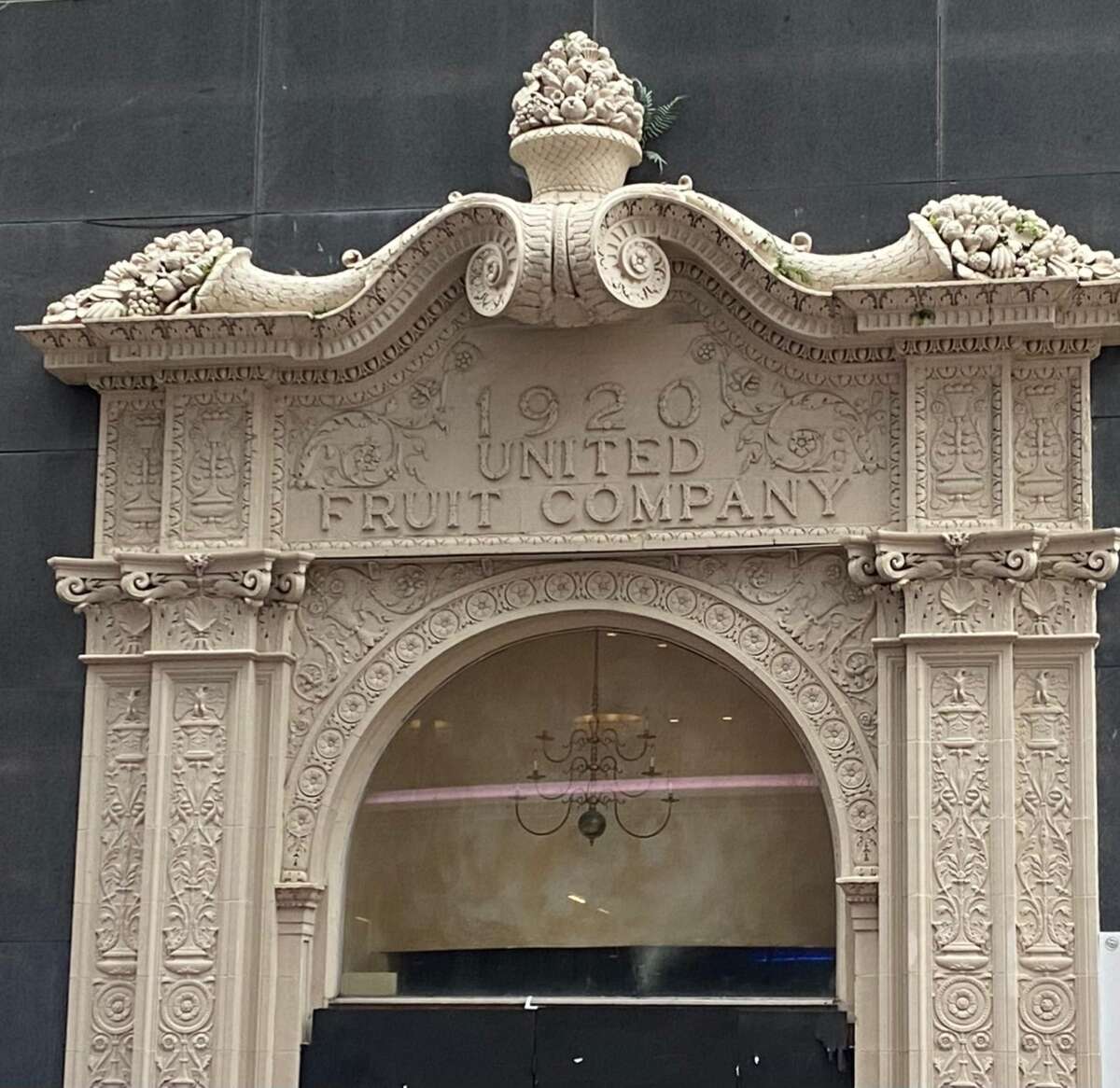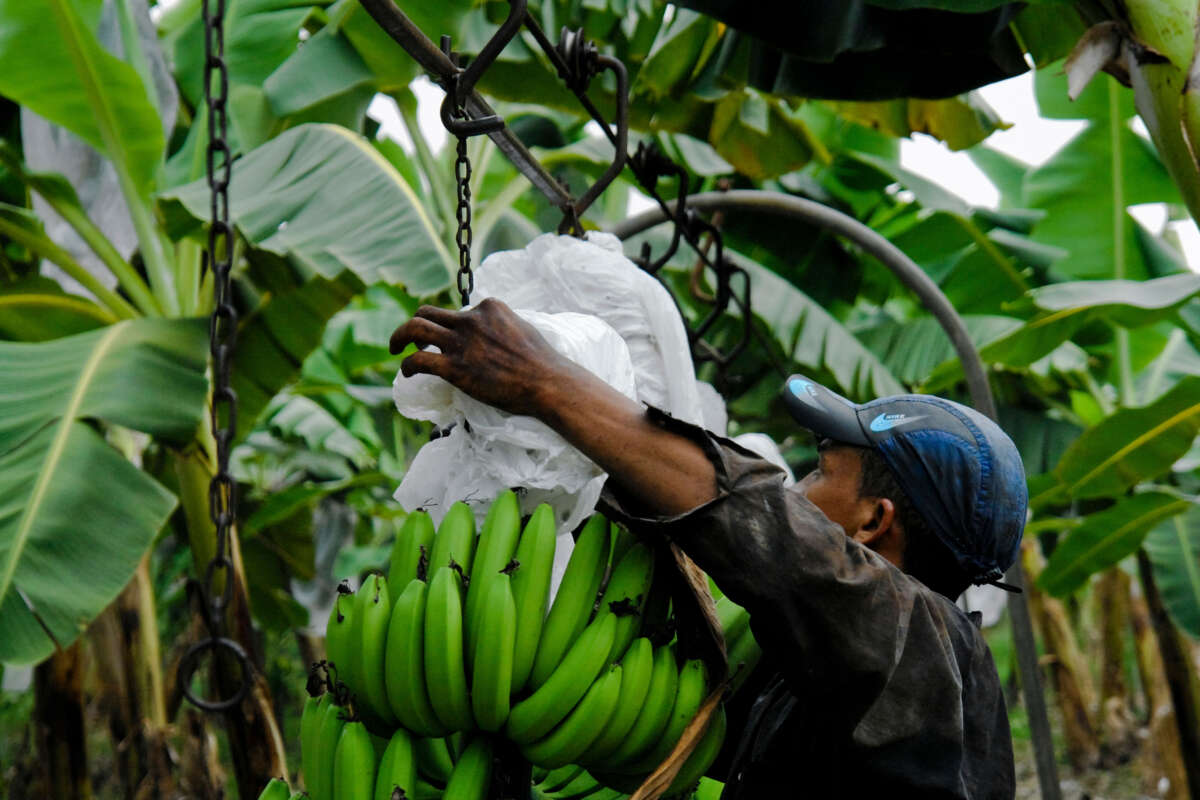Support justice-driven, accurate and transparent news — make a quick donation to Truthout today!
Chiquita, a Swiss-domiciled U.S. transnational corporation that is one of the world’s largest producers of bananas, has recently been found guilty in a Florida court for funding paramilitaries in the South American country of Colombia. On June 10, in the case Doe v. Chiquita Brands International, a jury declared that the corporation, which has headquarters in both Switzerland and Florida, must pay $38 million in damages to the relatives of eight Colombian men murdered by the paramilitary group United Self-Defence Forces of Colombia (AUC).
The decision marks a rare finding against a private company for human rights abuses in another country.
Speaking to Truthout, Dan Kovalik — an adjunct professor of law at the University of Pittsburgh — said he “welcomed the verdict against Chiquita Brands International.” Having previously worked on cases against Coca-Cola Company, Drummond Company and Occidental Petroleum for human rights abuses in Colombia, Kovalik told Truthout that Chiquita also supplied the paramilitaries with “3000 Kalashnikov rifles which Israel provided.”
According to CNN, on June 10 the jury established that “Chiquita knowingly provided substantial assistance to the AUC to a degree sufficient to create a foreseeable risk of harm to others.” With the case heard in the Southern District of Florida, Chiquita’s leaders told Newsweek that they were “disappointed by the decision.”
The fruit company added: “The situation in Colombia was tragic for so many, including those directly affected by the violence there, and our thoughts remain with them and their families. However, that does not change our belief that there is no legal basis for these claims.”
This latest statement by Chiquita seeks to erase the reality that in 2007 the company actually pleaded guilty to a U.S. criminal charge of carrying out transactions with a foreign terrorist organization, as the AUC has been categorised by the State Department in 2001. During the 2007 finding, Chiquita agreed to pay a fine of $25 million.
According to the U.S. Department of Justice:
From sometime in 1997 through Feb. 4, 2004 – Chiquita paid money to the AUC in two regions of the Republic of Colombia where Chiquita had banana-producing operations: Urabá and Santa Marta. Chiquita made these payments through its wholly-owned Colombian subsidiary known as ‘Banadex.’ By 2003, Banadex was Chiquita’s most profitable operation. Chiquita, through Banadex, paid the AUC nearly every month. In total, Chiquita made over 100 payments to the AUC amounting to over $1.7 million.
While Chiquita conceded to criminal conduct in 2007, for 17 years the corporation battled the relatives of the AUC victims. Now, according to Marco Simons, one of the plaintiffs’ lawyers, “these families, victimized by armed groups and corporations, asserted their power and prevailed in the judicial process.”
The brutality of the paramilitaries whom Chiquita paid was noted by CNN in the recent trial. One banana plantation worker, simply referred to as “David,” “saw his bus stopped at checkpoint in the coastal region of Urabá.” Forcefully removed from the vehicle, he was then “beaten to death in front of his fellow passengers, and dumped on the side of the road — where his killers covered his corpse with a banana plant. Cows would later feed on his body, according to court documents.”
Like Kovalik, Guillermo Andrés Mosquera Miranda — a Colombian trade union leader and high school principal, who is currently in Australia requesting political asylum and public support — welcomed the decision against Chiquita and noted its wider implications. Mosquera was forced to seek political asylum after assassins with links to a paramilitary group with ties to ex-president of Colombia Álvaro Uribe Vélez attempted to kill him due to his lack of cooperation with their corruption and standover tactics. Speaking to Truthout about the ruling against Chiquita, Mosquera said:
This decision is a historic event and the starting point for the Colombian Institutions in charge of justice to investigate and take measures against the actors who finance state terrorism. At the same time, the thesis of the participation of multinationals in the conflict, widely denounced by human rights organizations, is proven.
According to Kovalik, Chiquita’s actions “led to the takeover of large swaths of land in Colombia by the paramilitaries” while, recently on X, Colombian Sen. Wilson Arias claimed, “In 1994, Chiquita Brands donated $5,935 to Álvaro Uribe’s campaign for the governorship, according to a document from the National Security Archive.”
Uribe, who served as president from 2002 to 2010, was supported by the administration of George W. Bush and, according to many human rights organizations, presided over some of the worst human rights violations in Colombia’s history. Uribe himself was accused of having strong ties to the drug trade and was eventually placed under house arrest for wiretapping.
In the Colombian Senate, Arias also recently called out Chiquita for rebranding itself given it was responsible for the 1928 massacre in the town of Ciénaga near Santa Marta when it traded under the name of the United Fruit Company. Noting how the massacre in Ciénaga was depicted in Gabriel García Márquez’s novel One Hundred Years of Solitude, according to Kovalik: “The victims numbered into the thousands. It’s unknown because the bodies were disappeared.”

Kovalik noted that the United Fruit Company was also pivotal in the 1954 coup d’état in Guatemala against the democratically elected leftist President Jacobo Árbenz. With the country then ruled for several decades by a military junta that murdered approximately 200,000 Indigenous Guatemalans, Kovalik added the events are “now considered a genocide.”
In Colombia, Diana Carolina Alfonso, a journalist for the weekly newspaper Voz, told Truthout that the debates around Chiquita’s corporate practices in her country can be traced back to the days of the United Fruit Company, when lawyer Jorge Eliecer Gaitán called for accountability for those involved in the Ciénaga massacre. Alfonso notes that Gaitán, who was once a congressman, launched the “debate on the banana massacre” before he himself was murdered in 1948 while running as a presidential candidate in that year’s election.
The problem since that first debate until now, according to Alfonso, is that the Colombian judiciary has failed to hold accountable key domestic state actors in collaboration with foreign corporations, the private sector and paramilitary groups. Earlier this week, Alfonso noted that the progressive president of Colombia Gustavo Perto “has called on the judiciary to move with speed” in these types of cases, “such as one currently taking place against Coca-Cola Company.”
In the case of the banana company, Kovalik believes this is just the beginning of legal actions as “there are many more cases out there waiting for Chiquita” given that the victims “number into the thousands.” According to Colombia Reports, the paramilitary group AUC “left as many as 4,900 victims in Colombia’s Caribbean region.” These cases, said Kovalik, will either go to trial or be settled.
A terrifying moment. We appeal for your support.
In the last weeks, we have witnessed an authoritarian assault on communities in Minnesota and across the nation.
The need for truthful, grassroots reporting is urgent at this cataclysmic historical moment. Yet, Trump-aligned billionaires and other allies have taken over many legacy media outlets — the culmination of a decades-long campaign to place control of the narrative into the hands of the political right.
We refuse to let Trump’s blatant propaganda machine go unchecked. Untethered to corporate ownership or advertisers, Truthout remains fearless in our reporting and our determination to use journalism as a tool for justice.
But we need your help just to fund our basic expenses. Over 80 percent of Truthout’s funding comes from small individual donations from our community of readers, and over a third of our total budget is supported by recurring monthly donors.
Truthout’s fundraiser ended last night, and we fell just short of our goal. But your support still matters immensely. Whether you can make a small monthly donation or a larger one-time gift, Truthout only works with your help.
